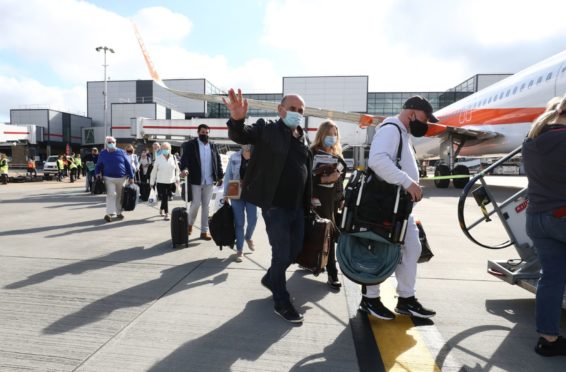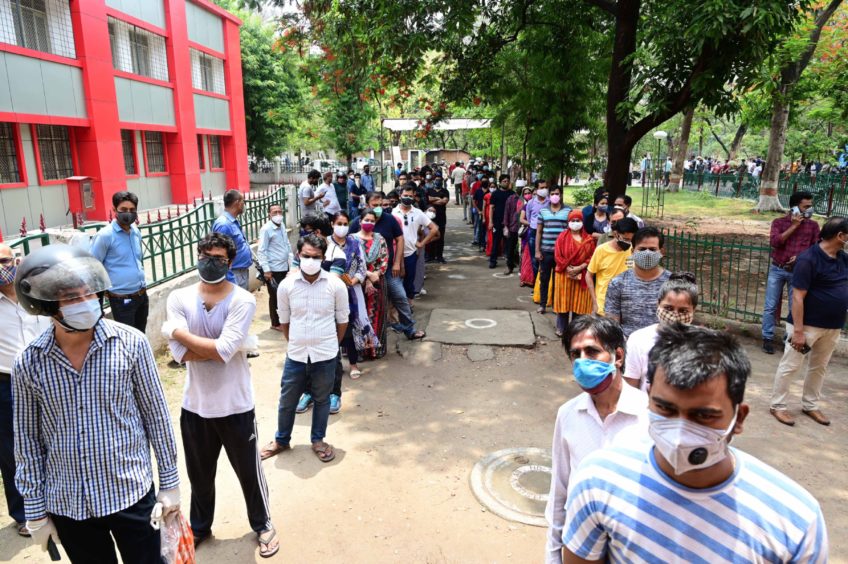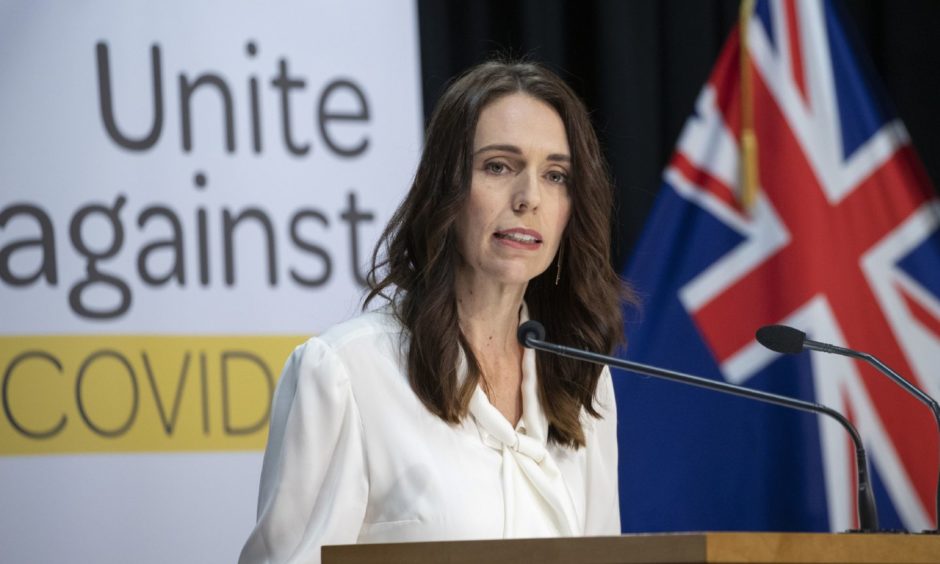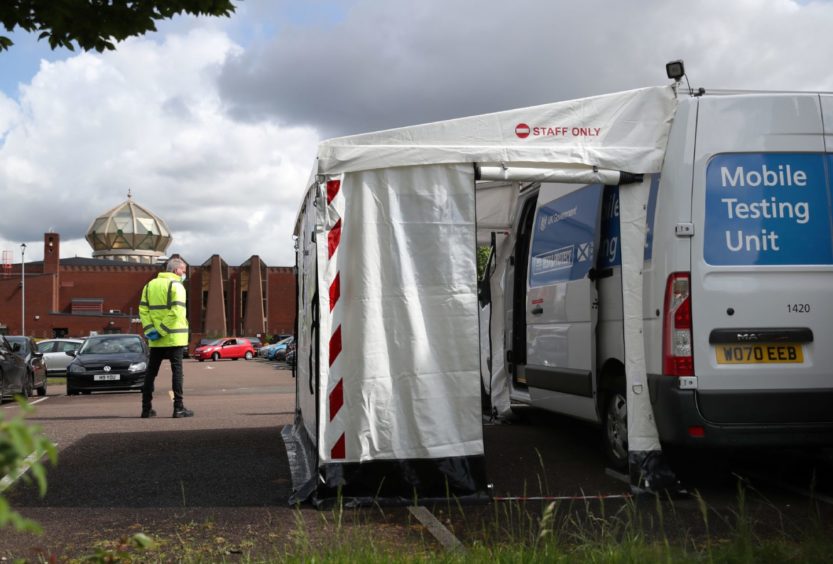What the government gives with one hand, it takes away with the other. As most of Britain returns to some version of normal this week, the liberation is tainted by further finger wagging and warnings.
The Indian variant has given ministers the jitters and a tone of regret has crept into the messaging around lockdown easing, as if they now resent promising so much.
The Prime Minister urged that ‘a heavy dose of caution’ was still necessary, while in Scotland, the First Minister was more brutal, shutting Moray and, at the 11th hour, Glasgow.
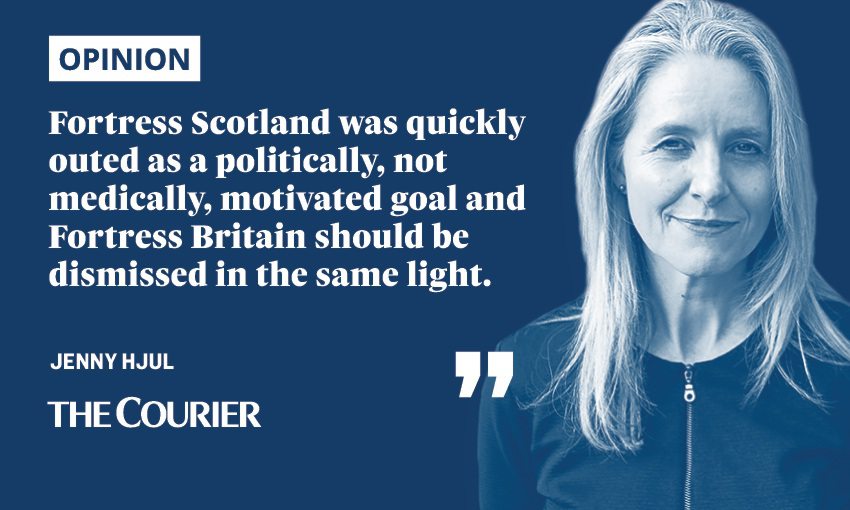
Given that vaccines were supposed to be our route to freedom – and that scientists say they work against the latest variant – people may be wondering, why the panic.
Surely if hospitalisations are not increasing among the vaccinated population, the NHS is not under threat and therefore there is no need to perpetuate pandemic restrictions.
The concern is that we will never be free until those in power concede that the virus and its variants are here to stay, but thanks to vaccination, together with herd immunity, we can live with it.
Families divided
Governments north and south of the border are nowhere near this wisdom yet, and neither are the opposition parties we would expect to hold them to account.
The main focus of their trepidation is foreign travel. With the legal ban on overseas holidays lifted on Monday, the locked down population might have looked forward to spreading their wings.
More poignantly, many people in these multicultural isles have longed to visit their relatives again, often for the first time in over a year.
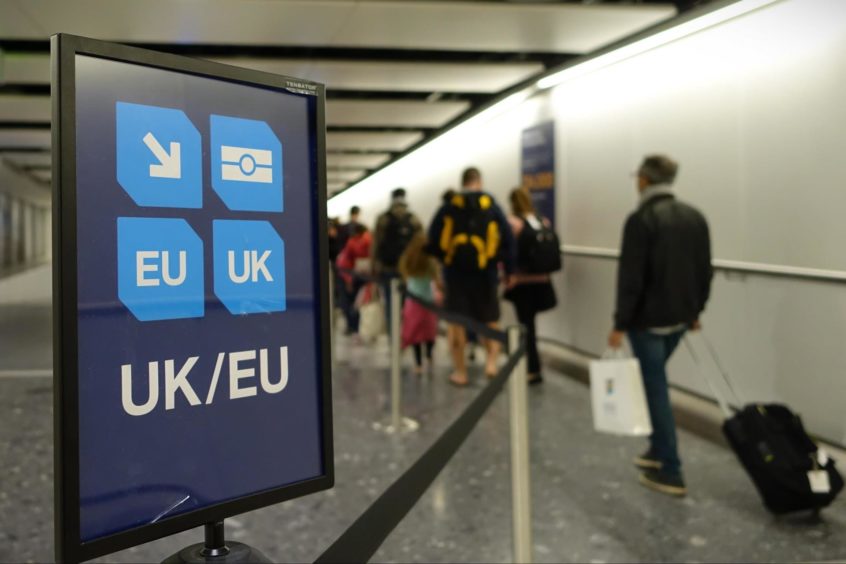
But permission to travel has been heavily caveated. Health Secretary Matt Hancock said people should not go to countries such Italy, Spain and Greece unless ‘absolutely necessary’, despite their being on the amber list.
And Jason Leitch, Scotland’s national clinical director, told Scots to think ‘very, very carefully before booking foreign travel’.
Any number of scientists have weighed in, stretching their remits considerably to recommend we take our holidays in Bournemouth or Cornwall.
In attempting to stigmatise foreign travel, we are in danger of developing a fortress Britain mentality
Holidays are easier to pick on than, say, pubs or restaurants because banning them impacts fewer people.
But restoring pre-Covid rights includes the right to roam, for whatever reason, to whatever destination we choose, within Foreign Office guidelines.
In attempting to stigmatise foreign travel, we are in danger of developing a fortress Britain mentality. The signs are that this attitude is already gaining ground.
UK must remain open
Calling for border closures is fast becoming the answer to all Covid spikes.
Labour MP Yvette Cooper, chair of the Commons home affairs select committee, said the government should postpone the reopening of international travel.
If India had been put on the red list sooner, the argument goes, the surges seen in Bolton and Glasgow could have been avoided.
It is tempting to compare the UK with countries that have effectively pulled up the drawbridge and managed to contain coronavirus cases and casualties. But we are not Australia or New Zealand and would not want to be.
Such fortresses are storing up economic and health problems for the future, even if they intend to remain hermetically sealed for eternity.
With low vaccination rates and next to no natural immunity, their populations will be vulnerable when they are eventually exposed to the outside world again, or when the outside world makes an uninvited appearance.
Such fortresses are storing up economic and health problems for the future, even if they intend to remain hermetically sealed for eternity.
With low vaccination rates and next to no natural immunity, their populations will be vulnerable when they are eventually exposed to the outside world again, or when the outside world makes an uninvited appearance.
They, like us, depend on overseas trade and tourists, and cannot opt out of globalisation. With a global pandemic, the best solution is to think globally (sharing expertise and vaccinations), not nationally.
No time for nationalism
The latter approach has been well rehearsed in Scotland, with Nationalist politicians and their public health advisers particularly keen on keeping out the English to keep out the virus.
While such posturing was too impractical to be taken seriously, it did encourage saltire waving border vigilantes, and perhaps accounts for the dearth of summer holiday bookings in the struggling Highlands hospitality sector.
Fortress Scotland was quickly outed as a politically, not medically, motivated goal and Fortress Britain should be dismissed in the same light.
Delays in vaccinating eligible groups and problems with the Covid helpline are holding up the roll-out
The jabs are doing their job; they have protected us from the worst of Covid and are increasingly making safe the countries we most like – or need – to visit.
Speeding up the vaccination programme and making it more efficient in reaching everyone will ensure greater safety.
In Scotland, delays in vaccinating eligible groups and problems with the Covid helpline are holding up the roll-out, even in Glasgow where the Indian variant has hit hardest.
Recent hospitalisations in Bolton are mainly among the unvaccinated; the correlation is clear.
And it seems low vaccine uptake in London could be as much to blame for the spread of the Indian variant there as travel from the subcontinent.
Entire populations cannot be cut off indefinitely from a globally circulating disease but they can be vaccinated.
